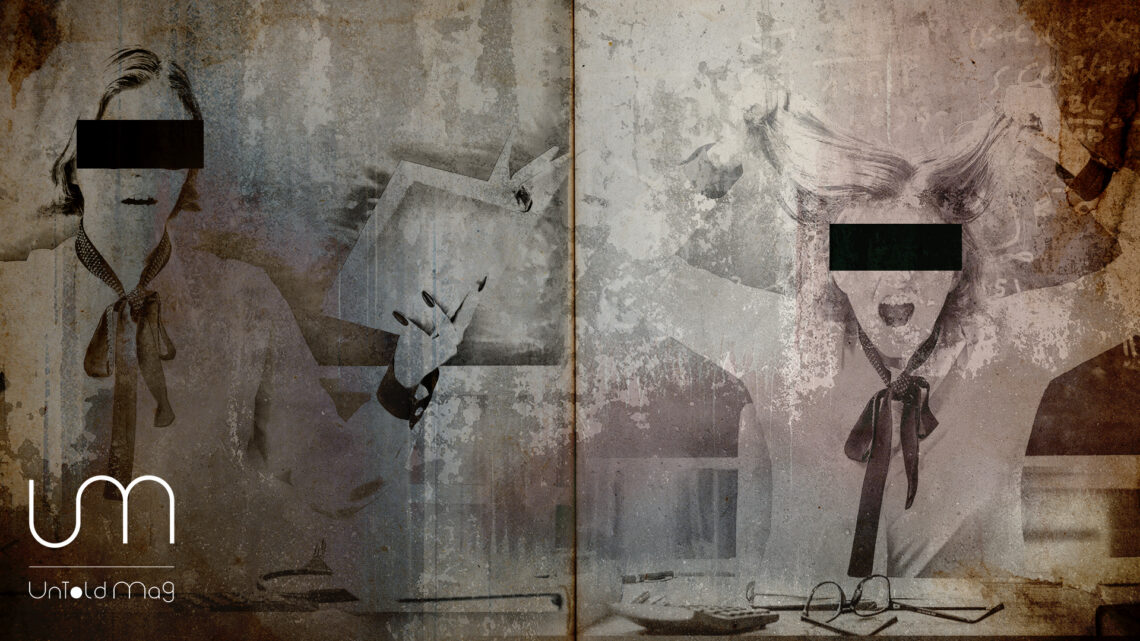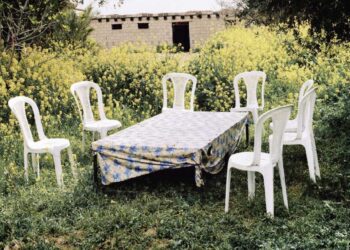No matter what realm of life we are talking about, the politics of “serving the servants”, as Nirvana used to sing decades ago, has always worked well to support regimes of power and control. In the academic world where I work – as surely in many other worlds – the servants are those with a quiet temper, who either get along with what occurs around them, or do see what occurs but prefer remaining servants and leaving it unquestioned to not risk their enslavement-based careers. This common practice of compliant academic servitude raises a few questions on how pedagogy itself, the core of higher education institutions, is widely understood and operated within the academic world. Paulo Freire’s work powerfully speaks to such contradictions, such as what I call behavioural dissonance between what we write and teach (and, thus, to some extent, who we say we are) and how we actually behave in everyday life. Psychologists (e.g., Festinger, 1957) define “cognitive dissonance” as conflicting attitudes which generate psychological discomfort as the individual’s beliefs do not match with their attitudes. In some cases, such a discomfort does not seem to be there, because individuals use oblivion as a resilience strategy.
While living in a world based on behavioural dissonance, I have always found it refreshing and re-energizing to read Brazilian philosopher Paulo Freire, especially at the beginning of the academic year: new cohorts of students coming in, hopes for change are high, and my anger around an unlikely change of academia goes temporarily forgotten. In this short article, I would specifically like to focus on Freire’s Pedagogy of Indignation, which was published with Routledge after his death by his wife Ana Maria Araujo Freire (2004). The text does not intend to appear as exclusively – or markedly – academic. Reading it may make you furious about the politics of the system in which we, as educators, work: not because of what the book spells out, but rather because of what it does not say. It is indeed your own conscience, stirred by Freire’s words, which should let you furious.
The Pedagogy of Indignation works as an important reminder, which looks trivial when written on a virtual page: we can choose. And, thus far, we have tragically chosen for the worse. The future does not make us: we can be subject to multiple structures of power, but we remain the ones who need to decide what our intervention in this world will be. And we need to take responsibility for what we decide because there is always a possibility. While we academics hide behind fatalistic determination that underlies the (intentionally) abstract idea of a “neoliberal academia” – as though “neoliberal academia” could ever be a given formula, a given reality – “neoliberal academia” is about nothing but people’s attitudes, personal decisions and deeds. In such a fatalistic determination, the possibility for change is never truly contemplated, but, importantly, it is continuously paraded. Parading a radical approach to research and to academic politics while acting inconsistently (e.g., speaking about empowering research subjects while doing power games with subordinates, or advocating against plagiarism while plagiarizing others) is a key component of academics’ behavioural dissonance, and it is successful in working against what Freire calls a “radical pedagogy”. Indeed, when too many people benefit from the status quo, radical changes become challenging, or even impossible.
The future does not make us: we can be subject to multiple structures of power, but we remain the ones who need to decide what our intervention in this world will be.
Let’s face it. A truly radical pedagogy would make many uncomfortable: you obviously need to stir discomfort among colleagues and inside yourself, as well as identify and dismantle privileges. Reproducing the power game of our own patrons is way easier, while thriving on a politics of behavioural dissonance between who we actually are and what we teach, write, and we say we are. Although often advocated through teaching (and even striking) practices, a truly “radical” pedagogy would be frowned upon and eventually undermined by most teachers, because it would help the servants identify who will not serve either them or others. In other words, practicing a radical pedagogy rather than parading it would finally break the privilege-from-enslavement chain, which rewards staunch, faithful servants with the “privilege” of enslaving or disrespecting others when their turn comes.
Practicing a radical pedagogy rather than parading it would finally break the privilege-from-enslavement chain, which rewards staunch, faithful servants with the “privilege” of enslaving or disrespecting others when their turn comes.
As I wrote some time ago, personalizing bad and positive human practices – something that UK academia particularly struggles with – means identifying the people who adopt conservative and unjust behaviours, rather than blaming an abstract system of power and control. It means opening up some space for a radical pedagogy that is able to undermine such abstractness of injustice and enslavement. My personal view is that Freire’s radical pedagogy is actually the only possible, real pedagogy that I know of. As Freire phrased it, discarding the idea of a radical pedagogy implies dropping education for technical training, which helps us preserve the world’s inequalities: “Those who deny me my pedagogicalness, drowned and nullified, according to them, in the political, are just as political as I am. Except that, obviously, they take a different position from mine” (Freire, 2004: 71). Simply put, the pragmatic act of teaching (bereft of political messages) does not exist. Indeed, what could misleadingly be viewed as apolitical teaching rather becomes a deliberate omission of a political message, which is a political act per se. In this vein, “pragmatic” instructors cannot be but conservative teachers, rather than educators stricto sensu.
While in academic literature we see different levels of indignation, the latter, in most cases, does not reflect the way we live, pointing to a lack of “existential consistency” as Freire argued. In this sense, teaching indignation is not the same as teaching with indignation. Indignation is likely to be paraded intellectually, for example by including feminist, critical race literature and alike in your teaching material. Or it rather turns into a narcissism of indignation, namely building your own image as a “radical academic” without doing anything “radical”, or even engaging with anti-radical practices. By this token, indignation becomes a mere academic performance to gain the favour of a certain public. To Freire, finding “existential consistency” means reflecting indignation into the intimate dimension of living, in the way we denounce the politics around us, and in the relational economy that we actively build on a daily basis. As Freire put it, we are beings of responsibility, and we cannot escape that. If we have been able to change the physical world – and likely into the worse – we are surely able to work on changing culture, history, and politics: “If it is possible to reach water by digging up the ground, if it is possible to decorate a house, if it is possible to believe this or that truth, if it is possible to find shelter from cold and heat, if it is possible to alter the course of rivers and to build dams, if it is possible to change the world we have not created, that of nature, why not change the world of our own creation, that of culture, of history, of politics?” (Freire, 2004: 81).
Omar Aziz, a Syrian intellectual and activist who died in Syrian president Bashar al-Asad’s prisons in 2013, theorized that we, human beings, have a “time for the revolution” (in Arabic zaman ath-thawra) and a “time for power” (zaman as-sulta). Freire’s radical pedagogy works towards dismantling this binary and enabling the “time of the revolution” to merge into the “time for power”, where individuals are constrained by the social and political way in which their lives are organized. In the academic world, this would mean coordinating our alleged pedagogic acts with our own deeds. However, Aziz’s theory reminds us that the perfect synergy between intellectual and practical activism is unlikely to happen, because of the spatial and temporal restrictions in our daily life. For example, if most of my life revolves around teaching, assessing, and managing students of forced migration, in that exact timeframe, I am also the one who is less likely to physically go to London Gatwick Airport to stop refugees’ deportations. Likewise, if I am teaching how crises are turned into sources of profit, I am unlikely to be the one who actively leads the rebellion against the politics in place.
Aziz’s theory reminds us that the perfect synergy between intellectual and practical activism is unlikely to happen, because of the spatial and temporal restrictions in our daily life.
In a nutshell, while, through the act of teaching indignation, students are taught that the future is a possibility they can work on, educators tacitly give up the dichotomy between the politically active and the pedagogical. However, as Freire warned us all, there is no system which has forced us to experience it as a dichotomy, but it is rather us, academic educators, who have abdicated change though behavioural dissonance.
If a future for a radical pedagogy is ever there, we do not merely need to read, intellectualize, or lecture about indignation. This aborts the possibility for a radical pedagogy and merely parades indignation through behavioural dissonance. Instead, we need to develop a self-radical pedagogy, which can show us whom we really are, how to make ourselves uncomfortable, and how to teach with indignation towards those (like ourselves) who keep serving the servants.








